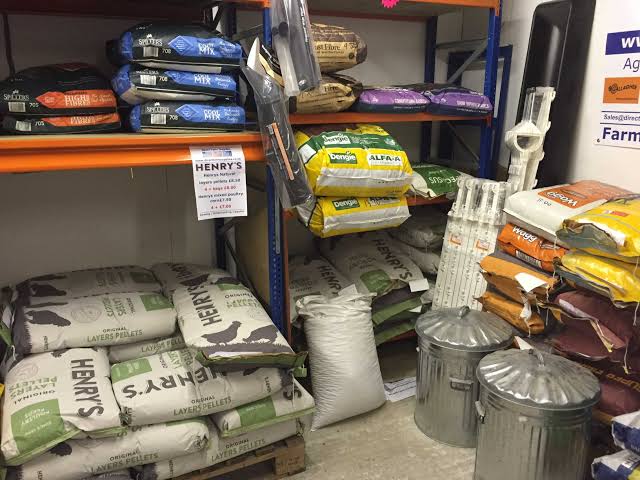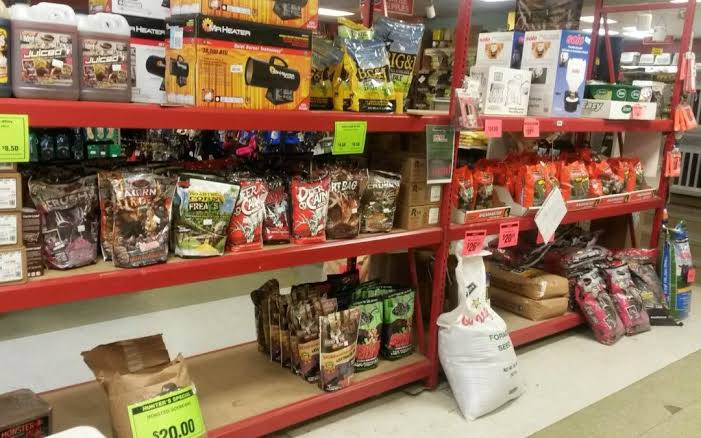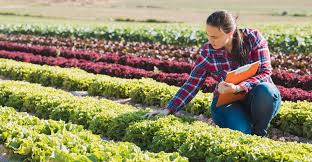Farm supplies are essential for the success of any agricultural endeavor. These supplies encompass a wide range of tools, equipment, and resources that play a crucial role in the day-to-day operations of a farm. From planting seeds to harvesting crops, each stage of the farming process relies on the availability and proper utilization of these supplies.
At the heart of farm supplies are the basic tools needed for cultivation. Shovels, hoes, and rakes are among the fundamental implements that farmers use to prepare the soil for planting. These tools, often made of sturdy materials like steel or iron, are designed to withstand the rigors of manual labor, ensuring that farmers can efficiently work the land.
Seeds are another integral aspect of farm supplies. The selection of high-quality seeds is paramount, as it directly influences the yield and quality of the crops. Farmers carefully choose seeds based on factors such as climate, soil type, and the specific crops they intend to grow. The right seeds, combined with proper soil preparation, set the foundation for a successful harvest.
Watering equipment is crucial for providing crops with the necessary moisture for growth. Irrigation systems, hoses, and watering cans are common tools used by farmers to ensure that plants receive an adequate and consistent water supply. Proper irrigation is vital, especially in regions with irregular rainfall, as it helps prevent drought stress and contributes to optimal crop development.
Fertilizers and pesticides are essential farm supplies that aid in maintaining soil fertility and protecting crops from pests and diseases. Fertilizers provide essential nutrients to the soil, promoting healthy plant growth and maximizing yields. Pesticides help safeguard crops from destructive insects and harmful diseases, preserving the overall health of the farm.
Tractors and other mechanical equipment have revolutionized modern agriculture, significantly increasing efficiency and productivity. These powerful machines assist farmers in various tasks, such as plowing, planting, and harvesting, reducing the labor-intensive nature of traditional farming methods. Tractors also enable farmers to work larger plots of land, contributing to the scalability of agricultural operations.
Livestock supplies are essential for farms that incorporate animal husbandry. Feed, shelter, and medical supplies for animals ensure their well-being and contribute to the overall success of diversified farming operations. Proper care of livestock is crucial for obtaining quality products such as milk, meat, and wool.
In addition to these tangible items, knowledge and information are valuable farm supplies. Farmers benefit from staying informed about the latest agricultural practices, technological advancements, and market trends. Access to education and resources empowers farmers to make informed decisions, adapt to changing circumstances, and optimize their agricultural practices.
However, farm supplies encompass a broad spectrum of tools, equipment, and resources that are indispensable for the agricultural sector. From basic hand tools to advanced machinery, each element plays a vital role in the success of farming operations. The careful selection and utilization of farm supplies contribute to sustainable agriculture, food security, and the well-being of farming communities worldwide.
The interdependence of these farm supplies creates a dynamic system where each component contributes to the overall resilience and productivity of the farm. Farmers, often stewards of the land, understand the delicate balance required to cultivate crops and raise livestock sustainably.
One crucial aspect often overlooked is protective gear for farmers. Work on the farm involves exposure to various elements, including harsh weather conditions and potentially harmful chemicals. Safety goggles, gloves, and sturdy boots are essential for safeguarding farmers against potential hazards, ensuring their well-being during long hours of labor.
Storage facilities are also vital farm supplies, especially for harvested crops. Silos, barns, and warehouses provide shelter and protection against weather-related damage and pests. Proper storage not only preserves the quality of the produce but also allows farmers to manage inventory efficiently and plan for market demands.
Transportation plays a pivotal role in the distribution of farm products. Trucks, trailers, and other vehicles are essential for transporting crops from the farm to marketplaces. Reliable transportation infrastructure is crucial for ensuring that fresh produce reaches consumers in a timely manner, minimizing waste and maximizing economic returns for farmers.
Technology is an ever-growing component of modern farm supplies. Precision agriculture tools, such as GPS-guided tractors and drones, enable farmers to optimize resource use, reduce environmental impact, and increase efficiency. These technological advancements contribute to sustainable farming practices and help address the challenges posed by a growing global population.
Community support and collaboration are intangible but powerful farm supplies. Farmers often rely on local communities for labor, advice, and mutual assistance. Cooperative efforts, such as shared equipment or communal irrigation systems, enhance the resilience of farming communities and foster a sense of unity among those working the land.
Government policies and support programs also play a crucial role in ensuring the availability of farm supplies. Subsidies, grants, and infrastructure investments can significantly impact the accessibility of essential tools and resources for farmers, especially those in economically challenging situations.
In the grand tapestry of agriculture, the diverse array of farm supplies weaves together to sustain not only individual farms but also entire ecosystems and communities. The careful consideration of these supplies, coupled with sustainable farming practices, contributes to the long-term health of the environment and the prosperity of those who depend on the land for their livelihoods.
In essence, farm supplies extend beyond the tangible objects and encompass a holistic approach to agriculture—one that integrates traditional wisdom, technological innovation, and a deep respect for the interconnectedness of all elements involved in the cultivation of the land. As we look towards the future, the thoughtful management of farm supplies will continue to be at the forefront of efforts to build resilient, efficient, and sustainable agricultural systems worldwide.
Read Also: Manx Cats Breed Description and Complete Care Guide
Importance of Farm Supplies

The importance of farm supplies cannot be overstated, as they form the backbone of agriculture and are integral to the success of farming endeavors. These supplies play a crucial role in several key aspects of agriculture, contributing to food production, economic sustainability, and the overall well-being of farming communities.
1. Food Security: Farm supplies, including seeds, fertilizers, and pesticides, directly impact food production. The careful selection and proper use of these supplies contribute to higher crop yields and ensure a steady and reliable food supply. In a world where global food security is a pressing concern, the role of farm supplies in sustaining and enhancing agricultural productivity is paramount.
2. Economic Livelihood: Agriculture is a significant source of livelihood for millions of people worldwide. Farm supplies, ranging from basic tools to advanced machinery, enable farmers to cultivate the land efficiently.
The economic impact extends beyond the farm, influencing entire supply chains, from transportation and processing to distribution. A thriving agricultural sector, supported by essential farm supplies, contributes to economic stability and rural development.
3. Sustainability: The responsible use of farm supplies is crucial for sustainable agriculture. Proper soil management, efficient water use, and judicious application of fertilizers and pesticides contribute to environmental sustainability.
As concerns about climate change and environmental degradation grow, the adoption of sustainable farming practices supported by appropriate farm supplies becomes imperative for the long-term health of the planet.
4. Technology Integration: The incorporation of technological advancements into farm supplies, such as precision agriculture tools and machinery, enhances efficiency and productivity.
Technology not only streamlines farming processes but also allows for more precise resource utilization, reducing waste and environmental impact. The integration of modern technology into farm supplies promotes innovation and keeps agriculture at the forefront of progress.
5. Rural Development: Farm supplies are essential for the development of rural communities. As farms prosper, they contribute to the economic growth of surrounding areas. This, in turn, leads to improved infrastructure, education, and healthcare services. The well-being of rural communities is closely tied to the success and sustainability of agriculture, making farm supplies a catalyst for holistic development.
6. Biodiversity Preservation: Farm supplies, when used responsibly, contribute to the preservation of biodiversity. Sustainable farming practices that prioritize soil health, crop diversity, and ecosystem resilience help maintain a balanced and healthy environment. This, in turn, supports the diversity of plant and animal life, contributing to the overall health of ecosystems.
The importance of farm supplies lies in their multifaceted impact on food production, economic prosperity, environmental sustainability, and community well-being. Recognizing the significance of these supplies is key to fostering a resilient and sustainable agricultural sector that can meet the challenges of the present and future.
Read Also: American Shorthair Cat Breed Description and Complete Care Guide
Sustainable Farming Practices

Sustainable farming practices are essential for the long-term health of both the environment and agricultural operations. These practices aim to minimize the negative impact of farming on ecosystems, promote biodiversity, and ensure the well-being of future generations. Here are key aspects of sustainable farming:
1. Sustainable Seed Selection: Farm supplies play a crucial role in sustainable farming, starting with the selection of seeds. Farmers invest in high-quality, locally adapted seeds that align with sustainable practices, ensuring resilient crops and reducing the need for external inputs.
2. Organic Fertilizers and Soil Amendments: Farm supplies extend to organic fertilizers and soil amendments in sustainable agriculture. Instead of relying solely on synthetic fertilizers, farmers use natural alternatives to enrich the soil, promoting long-term soil health.
3. Drip Irrigation and Water-Efficient Tools: Water conservation is a significant aspect of sustainable farming, and farm supplies include tools like drip irrigation systems that enable efficient water use. Sustainable farmers invest in water-saving technologies to minimize environmental impact.
4. Cover Crop Seeds and No-Till Equipment: Sustainable farm supplies encompass cover crop seeds and no-till equipment. Farmers acquire these resources to implement practices that reduce soil erosion, improve soil structure, and promote biodiversity.
5. Biological Pest Control Solutions: In sustainable farming, farm supplies include biological pest control solutions. Farmers purchase beneficial insects and organisms to manage pests, reducing reliance on chemical pesticides and fostering a healthier ecosystem.
6. Organic Livestock Feed: Livestock care is part of sustainable farming, and farm supplies extend to organic livestock feed. Farmers prioritize sustainable feed options to ensure the well-being of their animals while minimizing the ecological impact of livestock farming.
7. Energy-Efficient Farm Machinery: Sustainable farming practices involve the use of energy-efficient farm machinery. Farmers invest in modern, eco-friendly equipment as part of their farm supplies to reduce carbon emissions and promote sustainable energy use.
8. Community-Sourced Resources: Farm supplies also encompass community engagement. Farmers may collaborate with local communities to share resources, exchange sustainable farming techniques, and collectively contribute to the success of sustainable agriculture.
9. Agroforestry Resources: Implementing agroforestry practices requires specific farm supplies such as tree saplings and support structures. These resources contribute to biodiversity, carbon sequestration, and sustainable land management.
10. Educational Materials and Workshops: Sustainable farming involves ongoing education. Farm supplies may include educational materials and workshops for farmers to learn about the latest sustainable practices, ensuring continuous improvement in their agricultural endeavors.
In summary, sustainable farming practices and farm supplies are interconnected. The choices farmers make in selecting and utilizing farm supplies directly influence their ability to implement sustainable practices, leading to environmentally friendly and economically viable agricultural systems.
Read Also: Food Preservation Methods






